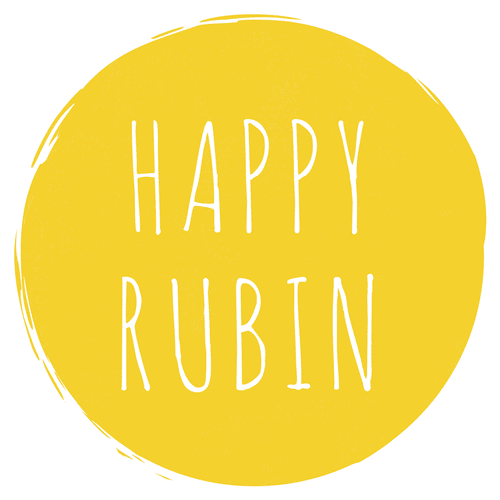![How To Deal With Sensory Overload [9 Tips For Overstimulation]](https://happyrubin.com/wp-content/uploads/2019/12/ik-ben-overprikkeld-150x150.jpg)
How To Build Trust Within A Team: 10 Powerful Steps

How can you build, increase or restore trust within a team / at work? How do you create that trust? What is needed for that? Read on for 10 tips to build that trust step by step …
Guest contribution by Niels from Solkie.nl
Contents of this page:
Why is trust important in teams and organizations?
Organizations in which people trust each other perform better. Trust is the foundation for a company.
Within every organization people are dependent on each other. No one can individually blame you for the success of a company. It is always a performance that you achieve together and that together starts with trust.
The extent to which you are successful in your work as an individual depends to a large extent on the trust you build. Trust is the foundation of any relationship , be it private or in the workplace.
You allow someone you trust – to your work, to your network – and will recommend you to others.
In organizations where there is a lot of trust, people experience …
- 74% less stress
- 106% more energy at work
- 50% more productivity
- 13% fewer sick days
- 76% more engagement
- 29% more satisfaction with life
- 40% fewer burnouts
Source: HBR jan-feb 2017: “The Neuroscience of Trust”
How can you build, increase and / or restore trust in teams? 10 Tips …
With the above data, of course, the question immediately arises of how you can build that trust and what you can do to increase trust …
1. Do you want to gain trust? Give trust
It may sound strange, but gaining trust starts with giving trust. If you do not dare to let go and do not dare to give others the benefit of the doubt, others will also be less likely to open up to you.
Certainly if you are a manager, it is essential to give your people the trust. And if you feel that they cannot be completely let go, for example, organize a weekly meeting to discuss progress and results. This works better than constantly sitting on someone’s neck or looking over their shoulder.
2. Give compliments
Such a weekly meeting is a good time to give a compliment. People grow from compliments, provided they are well-meant and well-timed.
If you receive a compliment from someone and experience it as such, it strengthens the mutual bond and thus trust grows.
When giving compliments, also pay attention to what you are complimenting. Always do that about a behavior, an action or a result and not about a trait. So say “how smart you did that” instead of “how smart you are.”
You can find more tips about conducting conversations in 12 tips to make difficult conversations easier.
3. Share your knowledge
If you have information that is also relevant to others in your company, share it instead of keeping it to yourself.
Suppose you have been to a trade show or have had an interesting customer visit that also benefits others. Share it! Your value increases in the eyes of others and that contributes to mutual trust.
By the way, sharing knowledge only works if you do it selflessly, without demanding a service in return.
4. Be conscientious
In order to gain the trust of others, it is essential that people can count on you. So make sure that you do your work well, keep agreements and deliver results.
Someone who has his act together is more likely to get someone else’s favors than someone where there is always something wrong. Managers prefer not to worry about the work of their people.
5. Avoid gossip
Jealousy and gossip are poison in an organization and can be fatal to your career. So keep far away from it. If you gossip to someone about someone else, your conversation partner will not know whether you will gossip about him or her later. So you don’t get anywhere with it, except that it damages your reputation.
If you are at odds with someone at work, resolve it among yourselves or vent your frustration with someone in the private sphere.
6. Develop others
Anyone who helps others to get better also improves themselves. People feel seen and appreciated when you compliment them on what they do well and when you positively critically indicate what they can improve.
As a manager you help yourself by being vulnerable and asking how people want to be approached and helped. So: “What can I help you with and how can I help you?”
It is a boost for the trust you gain with it. More about constant learning: Learning organizations always win, know why.
7. You know how to give a good attitude
The attitude you adopt largely determines the way in which others see and will approach you.
- A closed attitude doesn’t invite others to open up to you. You don’t get the trust.
- A slumped posture doesn’t work either. Others will view you as someone who is tired, weak, or uninterested.
- So be aware of the attitude you take when someone approaches you. Be open and friendly, make eye contact and give the other person the feeling that he or she is being heard by, for example, nodding in understanding.
8. Give a warm welcome
Research has shown that in companies where people receive a good introduction and feel that they are welcome, there is much less turnover and enthusiasm and involvement increase enormously.
It works exactly the same on an individual level. So make sure that people feel welcome with you, whether it is a manager, colleague or staff of yours. Sometimes it is about small things, such as getting coffee together or having lunch together at noon.
9. Take care of yourself
You can be so good at your job and have brilliant ideas all the time or always be the last to turn off at night; If your desk is a mess, your clothes are stained and your hair looks the same as it did when you got up, few people will give you the credits you deserve.
So make sure you look neat and your workplace gives the impression that you have everything in order and under control.
10. Be a rock for people
Surviving at work is not always easy. How nice is it that there is someone you can always go to to ask something or to think aloud together.
Being that safe beacon where everyone feels comfortable means tremendous value when it comes to trust. And no one would want to miss out on such a valuable power.

![5 Best Self Care Tips For College Students [#1 Advice]](https://happyrubin.com/wp-content/uploads/2021/09/the-best-self-care-tips-for-college-students-440x264.jpg)
![How To Stick To New Year’s Resolutions: 9 Tips [Smart & Sure Ways]](https://happyrubin.com/wp-content/uploads/2019/12/tips-voor-goede-voornemens-440x264.jpg)
![How To Stop Being So Hard On Yourself [9 Great Tips]](https://happyrubin.com/wp-content/uploads/2019/12/we-moeten-zoveel-van-onszelf-en-anderen-150x150.jpg)

![19 Best Ice Breaker & Get-To-Know-Eachother Games [Fun & Simple]](https://happyrubin.com/wp-content/uploads/2018/02/leukste-ijsbrekers.jpeg)
![Becoming More Social: 41 Tips [Improving Social Skills] [List]](https://happyrubin.com/wp-content/uploads/2018/06/sociale-vaardigheden1.jpeg)
![How to start a conversation with anyone: 15 tips [Making contact]](https://happyrubin.com/wp-content/uploads/2017/08/gesprekstechnieken1.jpeg)
![372 Friend Tag Q&A Questions [Best Friend Quiz]](https://happyrubin.com/wp-content/uploads/2019/05/best-friend-tag-vragen-voorbeelden.jpg)



![Clingy & controlling behavior of partner/date [Extreme examples]](https://happyrubin.com/wp-content/uploads/2020/06/claimerig-gedrag-van-partner-eigenschappen-en-voorbeelden-150x150.jpg)

![How to recognize if a man is in love [Signals & his body language]](https://happyrubin.com/wp-content/uploads/2020/05/verliefd-gedrag-van-mannen-herkennen-150x150.jpg)


![Free will and religion / theology [Verses & Quotes on free will]](https://happyrubin.com/wp-content/uploads/2020/10/religion-on-free-will-quotes-1050x640-1-150x150.jpg)

![Dealing With Setbacks & Hardship [Lessons & Examples]](https://happyrubin.com/wp-content/uploads/2018/11/omgaan-met-tegenslag-tips-hoe-dan.jpeg)
![NLP Agreement Frame: Use these exact sentences [Examples]](https://happyrubin.com/wp-content/uploads/2020/10/agreement-frame-nlp-1125x640-1-440x264.jpeg)
![122 Best Comebacks In Any Situation [Best Examples]](https://happyrubin.com/wp-content/uploads/2020/06/beste-comebacks-technieken-tips-440x264.jpg)
![Using Hypnosis to Stop Smoking [HowTo]](https://happyrubin.com/wp-content/uploads/2020/05/stoppen-met-roken-door-hypnose-150x150.jpg)
![Presuppositions language pattern: meaning & examples [NLP]](https://happyrubin.com/wp-content/uploads/2020/04/wat-zijn-vooronderstellingen-150x150.jpg)
![Peripheral Vision: Meaning & Exercise [Essential Skill]](https://happyrubin.com/wp-content/uploads/2020/04/perifeer-zicht-trainen-tips-150x150.jpg)

![How To Start A Coaching Business [21 Smart Tips]](https://happyrubin.com/wp-content/uploads/2018/11/coachingpraktijk-starten-tips.jpeg)
![How to make dreams come true? [33 tips to realize dreams 100%]](https://happyrubin.com/wp-content/uploads/2018/05/dromen-mijlpalen.jpeg)
![How To Become Rich? 27 Millionaire Tips [Guaranteed To Work]](https://happyrubin.com/wp-content/uploads/2018/01/hoe-kan-ik-rijk-worden.jpeg)
![77 Best Online Marketing Tools [Recommendations] [Also Free]](https://happyrubin.com/wp-content/uploads/2018/08/beste-onlne-marketing-tools-tips.jpeg)
![Complete List Of Virtues & Qualities [Including Explanation]](https://happyrubin.com/wp-content/uploads/2018/12/kernkwaliteiten-uitleg.jpeg)
![Being Attentive: How Do You Do That? [Meaning & 9 Tips]](https://happyrubin.com/wp-content/uploads/2019/05/attent-zijn.jpg)
![Being Conscientious: Meaning Of This Virtue [Explained]](https://happyrubin.com/wp-content/uploads/2018/07/Consciëntieus-persoon.jpg)

![Best Books About Burn-Out [Top 10] [Update 2025]](https://happyrubin.com/wp-content/uploads/2020/06/beste-boeken-over-burnout-lijst-440x264.jpg)
![Best Self-love Books [Top 10] [Update 2025]](https://happyrubin.com/wp-content/uploads/2020/04/beste-boeken-over-zelfliefde-aanraders-440x264.jpg)
![Life changing books: 10 books that change your life [2025 Update]](https://happyrubin.com/wp-content/uploads/2020/03/levensveranderende-boeken-tips-150x150.jpg)
![Top 10 Best Books: Recommendations Per Genre [2025 Update]](https://happyrubin.com/wp-content/uploads/2019/12/best-books-per-genre-150x150.png)
![Best Books On procrastination: Must Reads [List] [2025 Update]](https://happyrubin.com/wp-content/uploads/2019/11/beste-boeken-over-uitstelgedrag-tips-150x150.jpg)
![Joe Dispenza: Events To Attend [2025 & 2026] [All Info]](https://happyrubin.com/wp-content/uploads/2020/02/joe-dispenxa-events-440x264.png)
![Best Online Study Options [Online Education Top List]](https://happyrubin.com/wp-content/uploads/2019/03/best-home-study-options-440x264.png)
![Teachable Review & Experiences 2025 [Bad Online Training Tool?]](https://happyrubin.com/wp-content/uploads/2020/02/Teachable-review-ervaringen-150x150.png)
![Audible Review, Experiences & Special Discount [Scam?]](https://happyrubin.com/wp-content/uploads/2020/01/audible-review-ervaringen-150x150.png)
![Guest Posts Wanted [Free & Always Directly Accepted]](https://happyrubin.com/wp-content/uploads/2019/05/gastbloggen-regels.jpg)
